This January, Tunisia celebrated the sixth anniversary of its Jasmine Revolution. Although Tunisia has achieved tremendous success since 2011, particularly in the political realm, a key threat to Tunisia’s political stability is the growing chasm between Tunisian youth and their government.
As the wave of protests that took place around the revolution’s anniversary show, many young Tunisians—including those who brought about the revolution in the first place—have lost patience in their government and regularly express their frustration in the street.
As I discuss in a new paper, youth political participation is puzzling. While one would have expected young revolutionaries, among others, to flood the political space following the uprising, Tunisia has actually witnessed a steady decline in formal political participation by youth since 2011. That is, Tunisian youth are politically engaged, yet they are increasingly eschewing formal politics (voting, joining political parties, and running for office) in favor of informal politics (starting or joining a civil society organization, protesting, or signing a petition).

Why is this? The most obvious explanation is disillusionment—young Tunisians are disappointed by the trajectory of politics over the past six years and have grown apathetic. But this misses the mark: while many youth are frustrated with the lack of economic and social progress over the past six years, much of Tunisia’s powerful civil society is led by youth, for example. That is, evidence shows they are in fact far from apathetic.

Some explanations look to the ever-present generational divide. The oldest generation of Tunisians (that of 90-year-old President Beji Caid Essebsi) came of age during Tunisia’s independence and who developed a political consciousness under the Bourguiba regime. The youth, in contrast, only had experience with politics during the authoritarian rule of Ben Ali. Through my interviews with young and old members of Tunisian government and civil society, it was clear that young people perceive the older generation as disrespectful and discriminatory towards them and that older Tunisians perceive youth as inexperienced. Yet this is not sufficient to explain why youth have disengaged to such a large degree from formal politics, rather than establishing their own political parties or running for office to challenge the older generation.
Finally, their lack of success in the formal sphere is another possible, yet insufficient explanation. The skills and motivations necessary to bring people into the street to protest do not necessarily translate to the formal political arena. Revolutions and street protests are far more black and white than politics. One activist said to me that within civil society, “there is no grey area” and “no room for compromise.” Yet compromise is exactly what is necessary to succeed in politics—both to get onto the ballot in the first place and to pass legislation. Additionally, growing up under Ben Ali, the younger generation was weary of forming the sort of top-down organizations that would have helped them compete in the formal political space against the established Islamist parties and the Bourguibists.

Confessions of a civil society advocate
While each of the above reasons has some merit, the most compelling explanation for the low level of youth participation in formal politics is due, primarily, to the attractiveness of informal politics (particularly civil society) relative to traditional politics. While some young Tunisians tried politics and have since chosen to exit the arena out of frustration, many never intended to participate in the first place. Instead, they’ve chosen to start civil society organizations or grow their pre-revolution informal networks, without any intention of joining the formal political sector.
While I have long advocated for increased attention to civil society—both by local governments and international donors—I fear that Tunisia is teetering toward a dangerous imbalance between civil society and politics that has the potential to destabilize the political transition. Tunisian civil society organizations have been unable to build—or in some cases have been disinterested in building—alliances with the government. Thus, many are not fulfilling a key democratic role: to offer the key bridging mechanism to effectively channel the interests of the public to the government.
Civil society represents a more attractive and effective method than formal politics for Tunisian youth to achieve their goals for several reasons: Political parties are perceived as weaker and less effective than informal politics; civil society is an easier avenue to enter than politics; and civil society provides better incentives for young people than formal politics. For young people who want to be politically engaged, civil society provides a creative outlet and the freedom to engage in a variety of initiatives. As one Tunisian official told me, it is “en vogue to participate in civil society.”
Youth participation matters well beyond politics
Tunisians (and the international community) should pay attention to youth participation for the obvious and less obvious reasons. First, Tunisian youth make up 60 percent of the population. If they were able to overcome their polarization, they would constitute a powerful political force. Similarly, on account of their sheer demographic size, for young people to opt out of the system can have dramatic negative impacts on Tunisia.
Youth who are less civically engaged may be more likely to participate in activity that is against the interests of the state, including taking part in strikes or protests or joining terrorist groups (Tunisia supplies ISIS with more foreign fighters than any other country across the globe: between 6,000 and 7,000 as of November 2015). Tunisia has also seen high suicide rates, particularly among unemployed university graduates.
Emigration from Tunisia has also grown since the revolution. In 2012, the Tunisian Ministry of Foreign Affairs recorded more than 1.2 million Tunisians living abroad (more than 11 percent of the country’s total population). That was a 3 percent increase from a decade earlier. Statistics for irregular migrants are likely much higher. Tunisia’s proximity to Europe has long led to significant numbers of irregular migrants transiting Tunis–both Tunisians and others from North and Sub-Saharan Africa. Most troubling, a recent survey by the Arab Barometer found that more than half of Tunisians aged 18 to 24 want to emigrate from their country, compared to just 13 percent of those aged 35 and above.
Opportunities on the horizon?
The Tunisian parliament recently passed the long-awaited municipal elections law and is expected to hold its first democratic local elections by the end of 2017. In my discussions with Tunisian officials, it was clear that they see municipal elections as a chance for youth to play a more influential role in politics. While I strongly support a Tunisian government effort at increasing formal youth participation—both in the voting booth and in running for office—I fear that many in Tunisia are putting far too much stock in the municipal elections. They may very well see even lower participation rates than national elections, and are not likely to dramatically alter the political landscape in Tunisia on their own. Rather than wait until 2018 to encourage youth participation in politics, international donors should begin to work with youth now on the importance of developing alliances with government and on building political platforms, encouraging civic engagement, and articulating their needs in the most effective manner possible.
While a strong and robust civil society is crucial to the consolidation of Tunisia’s democracy, without a partner “on the inside,” civil society will be unable to fulfill a critical role: acting as protector of the transition and mediating between the government and the people. Unless Tunisia’s revolutionaries find partners within government, we are likely to see a growing and deepening divide between civil society and government that has the potential to destabilize the Tunisian transition.
The Brookings Institution is committed to quality, independence, and impact.
We are supported by a diverse array of funders. In line with our values and policies, each Brookings publication represents the sole views of its author(s).

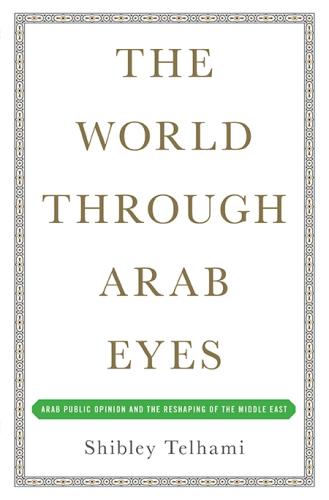
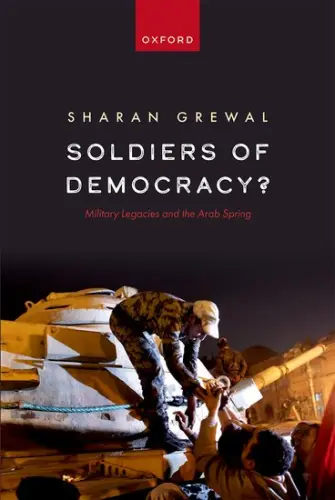
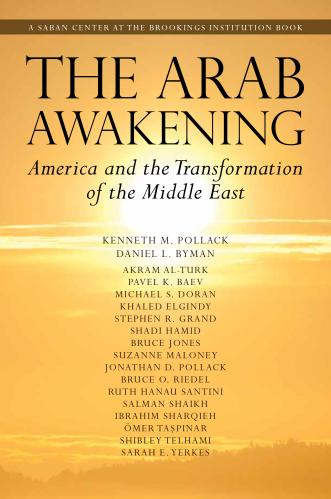
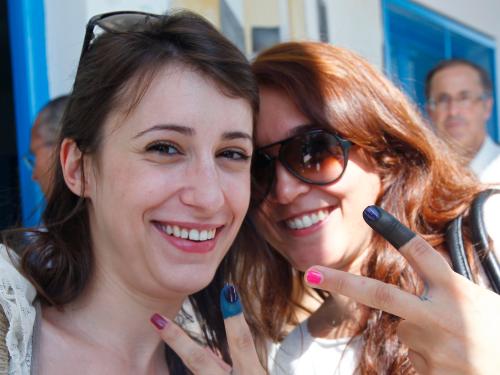
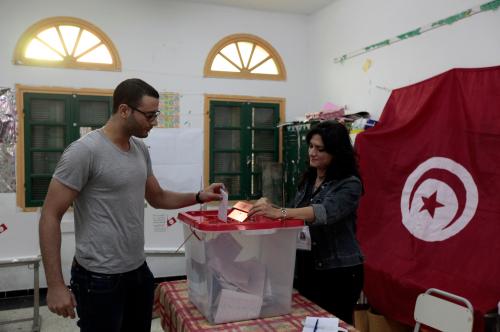
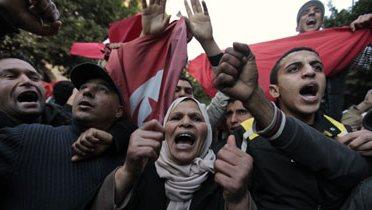




Commentary
Young people are staying away from Tunisian politics—here’s why
March 20, 2017